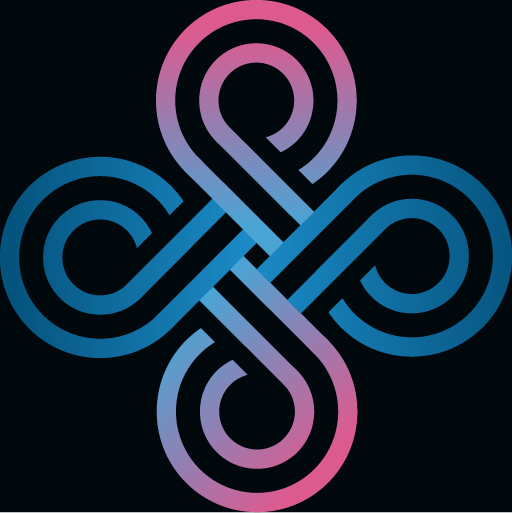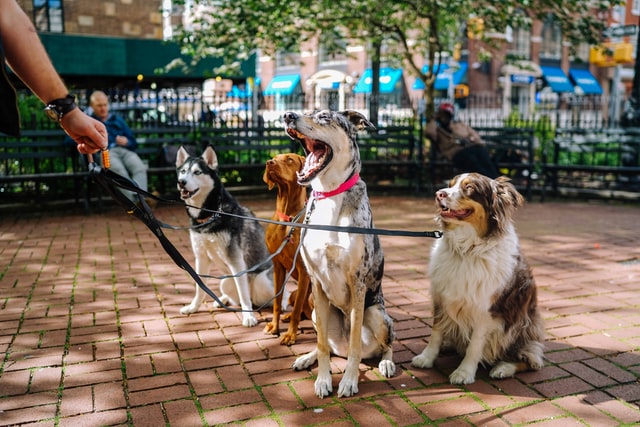The Invited Philosophers
Brothers & Philosophers: Andres & Carlos
This is the third virtual dinner. Carlos and Andres had dinner in New Jersey. Andres lives there and Carlos was visiting from New York with his dog Luna over the weekend (Luna was a topic of our discussion!). As usual, I had dinner in Miami.
Menu
- Andres & Carlos’ vegetarian dinner: Samosas, roasted eggplant, tofu with tajin, and vegetarian chicken.
- Paty’s dinner: Appetizer: Green salad with crab cakes. Main Dish: Wild rice with black bean casserole.
- Paty’s wine: Los Clop, Malbec 2016
The Philosophy
The German rationalist philosopher, Gottfried Wilhelm Leibniz (1646-1716) has made significant contributions in several fields spanning the intellectual landscape, including mathematics, physics, logic, ethics, and theology. We discussed his claim that “the actual world is the best of all possible worlds”. An excellent discussion of Leibniz metaphysics can be found here. Having two computer scientists with a strong background in mathematics and a deep spiritual understanding of the world and life made this evening conversation very special.
The Summary
Leibniz argument of our world being the best possible world relies on the belief that there is a God with good intentions. Many of his contemporary philosophers criticized this claim, most notably Voltaire who wrote “Candide”, a satire that attacks the passivity inspired by Leibniz’s philosophy of optimism. Leibniz’s argument for his conclusion may be gathered from the paragraphs 53–55 of his Monadology,
- Now as there are an infinity of possible universes in the ideas of God, and but one of them can exist, there must be a sufficient reason for the choice of God which determines him to select one rather than another.
- And this reason is to be found only in the fitness or in the degree of perfection which these worlds possess, each possible thing having the right to claim existence in proportion to the perfection which it involves.
- This is the cause for the existence of the greatest good; namely, that the wisdom of God permits him to know it, his goodness causes him to choose it, and his power enables him to produce it.
Analysis
Is this the Best of all Worlds?
Andres and Carlos started the conversation reminding me of all the pain and misery in the world and that there are too many people who choose to ignore it. Especially religious people, and often not because of hypocrisy, but out of ignorance. And then there are people like me who choose not to focus on the pain and misery in this world unless they can do something to help. I argued that there are two worlds. The one out there that we hear about in the news that is full of misery, and war, and violence – which might not be a good representation of the world. And our personal world in which we enjoy a lot of comforts and peace even if we nevertheless always find something to complain about. Can we trust the world we hear about in the news if the news business is about shock value and making money through “ratings”? Can we even trust our own assessment of our personal world if we have a tendency to complain?
I used to watch the global and political news every night, just 2 years ago. And then I stopped. Now I only pay attention to situations I can help with. When it comes to politics, I vote for the candidates who share my values. I don’t worry about how many people with opposing values also vote. I sometimes donate to a good cause, but I admitted with shame to my virtual guests that I have never made much effort to work for a good cause. Even in my company, which had as its objective to study the gut-brain axis to help people with mental disorders, I forgot the original aim, and instead focused on the work I enjoy, which is scientific research.
Reaching the Global Maxima
Andres argued that Leibniz arrived at his philosophy inspired by his work in Mathematics. Specifically Leibniz published “Nova Methodus pro Maximis et Minimis” in 1684 (New Method for the Greatest and the Least, or maxima and minima), which was an exposition of his differential calculus. During the same period, he was perfecting his metaphysical system through research into the notion of a universal cause of all being, attempting to arrive at a starting point that would reduce reasoning to an algebra of thought.
According to Andres we have to navigate many local maxima and minima before we get to the global maxima of our life and that our life purpose is to learn how to climb to that maxima. He argued that in our daily lives, moment to moment, we have to make so many decisions, and every decision we make changes the trajectory of our lives, creating a different world. Andres said that we are given lessons, and if we do not learn a lesson, God is very patient and gives us the lesson again and again until we learn it. The decisions we make affect whether we get the lesson again or not.
Andres had a good anecdote of an experience he had last year when he had to drive 2 hours to get the first shot of the Covid vaccine and when he arrived at his appointment, there were problems with his paperwork. He became very agitated and when they finally agreed to give him the vaccine, they measured his temperature and found that he had a slight fever and therefore could not get the vaccine. Only when he calmed down did the temperature go down. The lesson he learned is that getting angry and agitated makes him sick. Andres is vegetarian which helps him maintain good health, now, to keep that good health, he has resolved to learn to stay calm in frustrating situations. Perhaps if we learn our lessons, God will choose a better world for us? One with fewer lessons?
Trust in a God or Higher Power
If God creates the best of all worlds, should we relax and just go with the flow and trust that things will be all right? Should we avoid interfering by always trying to control things?
Carlos gave the example of his dog Luna and how anxious the dog was when he moved to his new place. It is a lovely apartment in a nice neighborhood and there are no threats to Luna, yet she was anxious and did not want to be there. Isn’t that what we do with God’s world? Let’s assume it is the best of all worlds, yet, like Luna, we mistrust it, we pull at the leash to go somewhere else. It reminds me of a friend, who when asked what he would like to be if reincarnation exists, answered: A dog. He said the life of a dog is wonderful, you get fed, groomed, go on many walks, and you sleep a lot. No responsibilities, you just get taken care of. I wonder if dogs agree or if they’d prefer to live in the wild like wolves? I also reminded him there are stray dogs and there are abusive or neglectful owners.
But what when things go wrong? Carlos had this example of a time when he was publishing a scientific paper and he was the first author but after he left the lab of his advisor who was also a friend, to get a new job, his advisor gave the first authorship to someone else. For scientists, publications are extremely important. What was worse is that he felt betrayed by someone he judged to be his friend. What can one do in such a situation? And there are many of such painful situations during a lifetime, making us feel that this is an inhospitable world.
Carlos said that in these cases we have to trust that there is a reason for everything and to wait for a sign about what to do next. In this particular case, he felt a gentle call to engage with art and went to a museum. He is an art lover and feels privileged to live in New York close to many beautiful art museums and galleries. He only needs to go walk the halls of the MoMA to feel the calming effect of art therapy. Instead of pulling at the leash he lets himself be guided to a place where the world looks brighter.
Humans of New York
I continued to bring up all the challenges and difficulties we all experience in our lives, but Carlos presented the argument that a life of struggle can lead to a much more fulfilling life and be more rich and meaningful than a life of ease and comfort. He gave as an example a story form the blog “Humans of New York”. In it, a young high school student with a difficult family life of parents who are crack addicts found a mentor in a teacher who inspired him to seek education and a better life. Carlos mentioned that in the comments to the story, some people were almost envious that their life seemed so bland in comparison to this young man. I am unsure if a life of hardship is necessary to make a life meaningful. Perhaps we need it to learn our lessons. I do not see a life that is a hard school as the best of all worlds. Yet here we are, and there is no doubt we are here to learn.
Are we Free if there is a Destiny?
Both Andres and Carlos implied that there is a destiny for each of us and that it is good to go towards it and that it is a good place to be. I asked, if there is a destiny, then are we free? Are we allowed to exert our free will without punishment? Take the dog on a leash example, a dog is not free to chase a squirrel, a good human owner will stop him and pull him back. Similarly, we are not allowed to chase after every pleasure that we have free will to choose. I mentioned how when we are young, if we are after drugs, sex and rock n ’roll, meaning after senseless pleasures, God will punish us like he punished Adam and Eve. We get pulled back by God’s leash which causes pain. Yet the options and temptations are there. We did not get too deep into this and I think I will discuss this in my next event, because Leibniz actually had a lot to say about free will.
Leibniz’s philosophical system combines determinism about the universe with free will through what he calls compatibilism, and distinguishes between several ways in which things might be determined in advance. Whatever is determined is clearly true and valid in all possible universes. Our actions are only “hypothetically” necessary–that is, they are only necessary on the hypothesis that a universe exists as it is, with beings such as us in it.
“Do men relish health enough, or thank God enough for it, without having ever been sick? And is it not most often necessary that a little evil render the good more discernible, that is to say, greater?”
― Gottfried Wilhelm Leibniz

